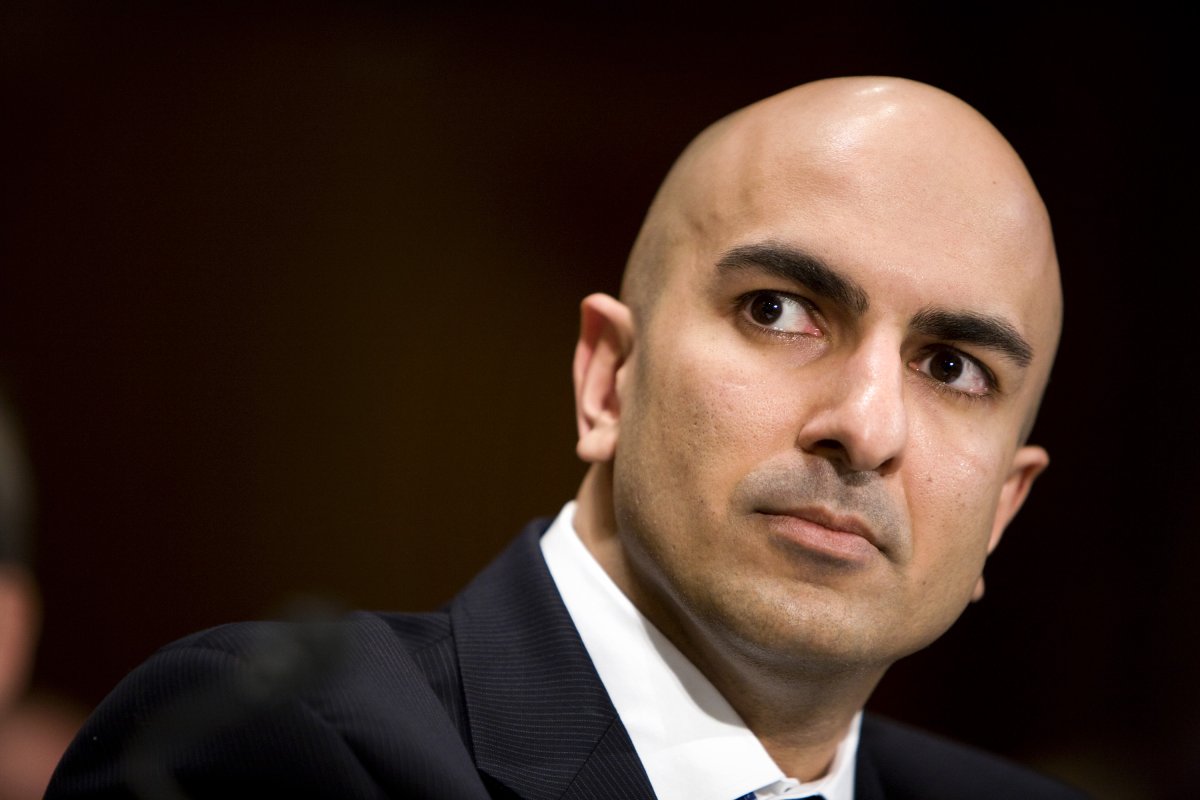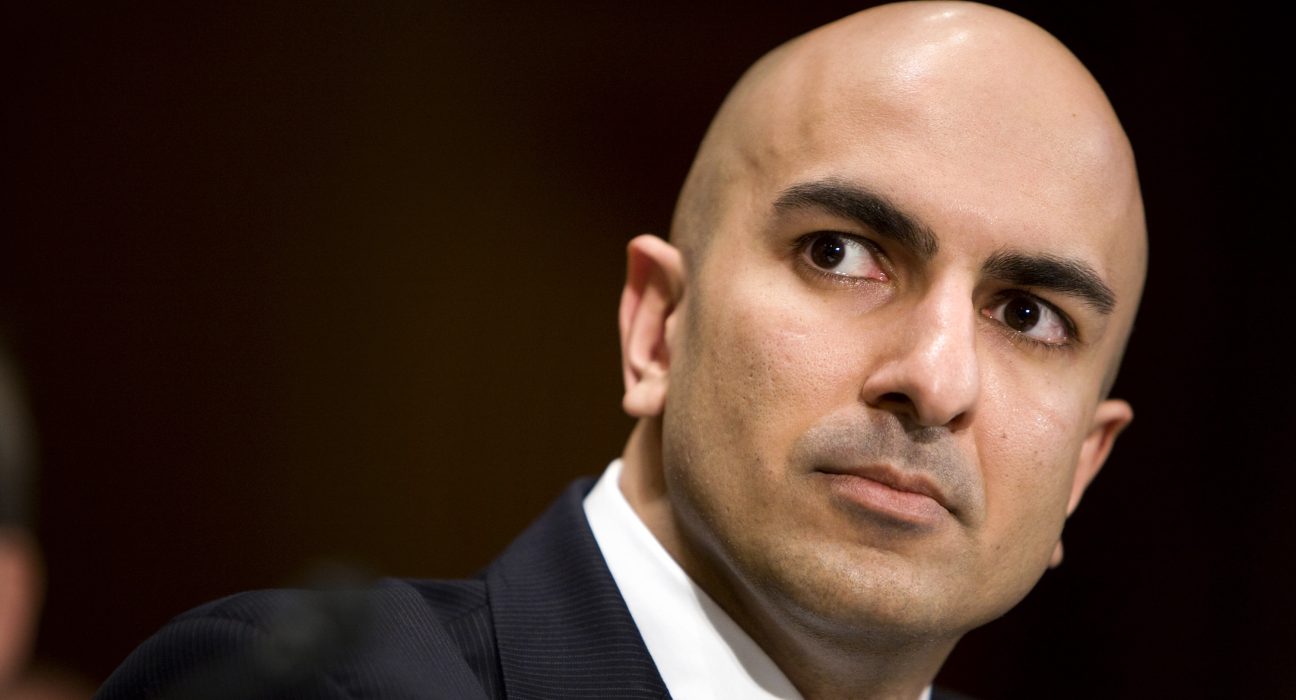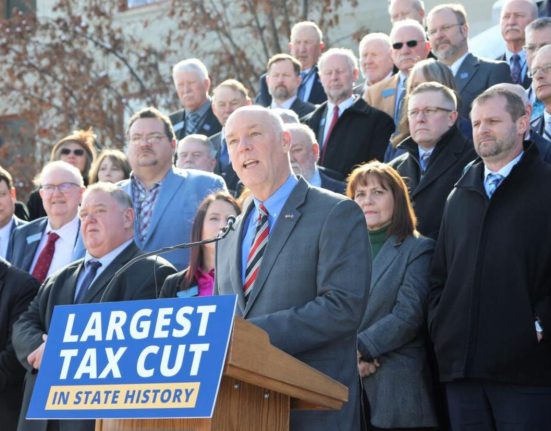Homebuyers hoping to capture a lower mortgage rate on the back of the Federal Reserve cutting interest rates in 2024 may have to wait a little longer.
The housing market, still rebounding from COVID-induced inflationary pressures and the Fed’s rate hikes aimed at stabilization, was eyeing relief from three projected policy adjustments later this year. However, the prospect of those reduced rates dimmed Thursday after Minneapolis Federal Reserve Bank President Neel Kashkari said that the inflation data the Fed is seeing doesn’t correspond with its anticipated patterns.
Kashkari, in an interview with Pensions & Investments, opened up about the Fed’s predicament.

Joshua Roberts/Getty Images
“There’s a lot of uncertainty about what’s happening in the economy right now,” he said, noting that the reopening of the economy post-COVID has challenged the Fed’s forecasting abilities, leading to a reliance on inflation data over traditional models which, according to him, “are not describing the inflationary dynamics that we’re seeing right now.”
“The disinflation we saw in the second half of last year primarily came from the supply side of the economy improving,” Kashkari noted. However, he expressed concern over recent inflation data, stating, “The last couple months of inflation data has been a little bit concerning, more moving sideways than continuing to fall.”
That observation casts doubt on the expected trajectory towards the Fed’s 2 percent inflation target, complicating future policy decisions that would have a positive effect on mortgage rates.
Kashkari’s uncertainty was echoed in his stance on interest rate cuts. “In March, I had jotted down two rate cuts this year if inflation continues to fall back towards our 2 percent target,” he revealed. Yet, the persistently high inflation has made him reconsider, “But if we continue to see inflation moving sideways, then that would make me question whether we needed to do those rate cuts at all.”
Experts say that for the housing market, that means higher mortgage rates for longer.
“We do not expect rates will decrease meaningfully in the near term,” Sam Khater, Freddie Mac’s chief economist said Thursday while noting a recent stagnation in mortgage rates.
His commentary echoes a broader sentiment of uncertainty within the housing market, largely influenced by a tightrope walk of economic indicators. The current mortgage rate, which Freddie Mac pegged at an average of 6.82 percent, is a marked increase from the previous year. The figure, while not breaching the 7 percent threshold seen in previous fluctuations, represents a barrier to entry for many potential homeowners.
Despite a recent uptick in consumer price inflation to 3.2 percent annually that is preventing the Fed from cutting rates, Khater said the housing market is adjusting in a different way.
“On the plus side, inventory is improving somewhat, which should help temper home price growth.”
A report issued Tuesday by data analytics company CoreLogic indicates a year-over-year home price increase of 5.5 percent as of February, with predictions of continued, moderate growth.
The growth, according to the report, suggests a market responding to mortgage rates, inventory levels, and economic sentiment. “Home price growth pivoted in February, as the impact of the January 2023 Home Price Index bottom finally faded,” said CoreLogic chief economist Dr. Selma Hepp.
“As a result, the U.S. should begin to see slowing annual home price gains moving forward,” she said.
Buyers, some of whom are watching the Fed’s next moves, may find themselves navigating a market where opportunities are measured against the backdrop of economic indicators and policy directions.
Uncommon Knowledge
Newsweek is committed to challenging conventional wisdom and finding connections in the search for common ground.
Newsweek is committed to challenging conventional wisdom and finding connections in the search for common ground.







